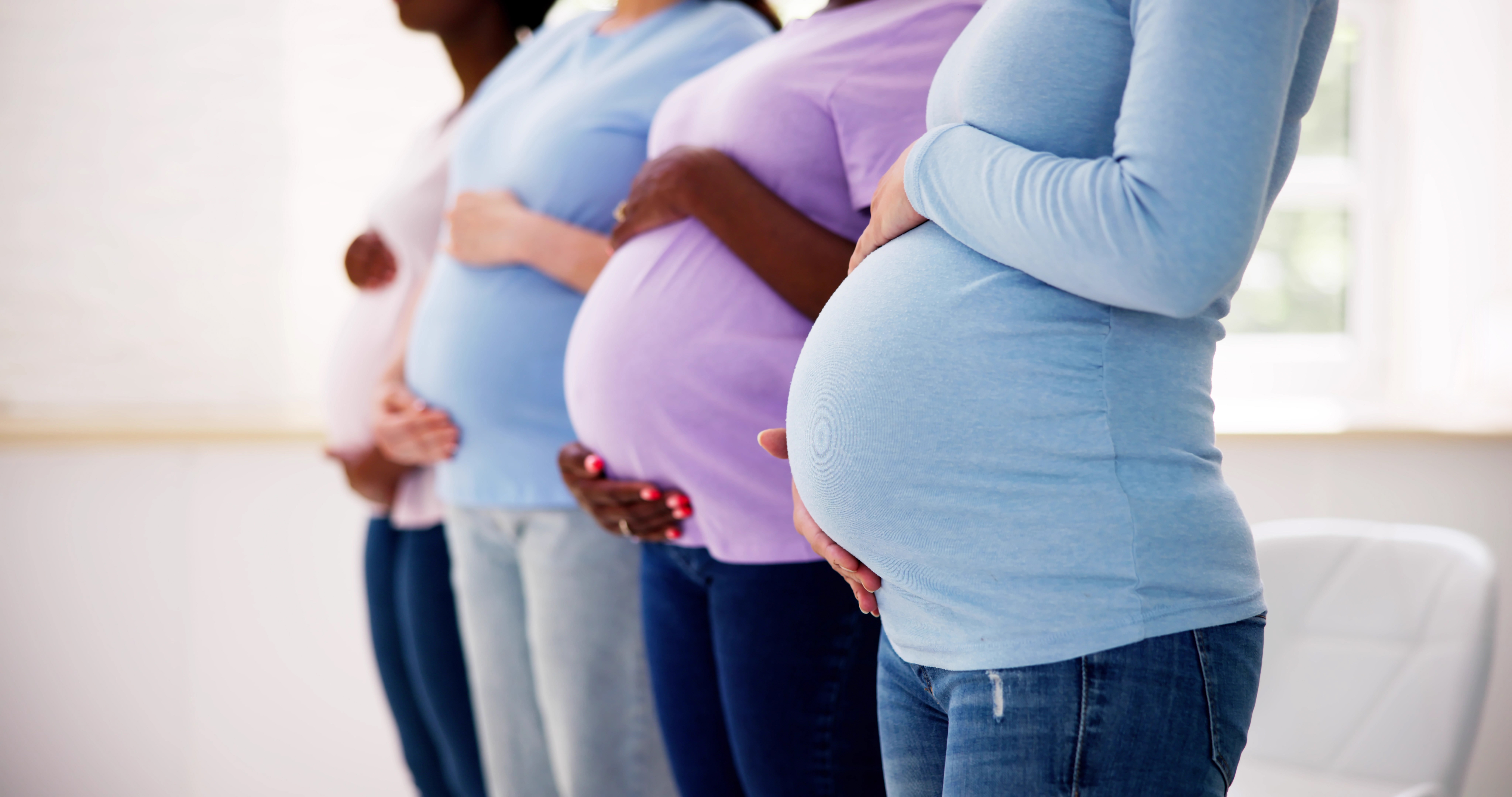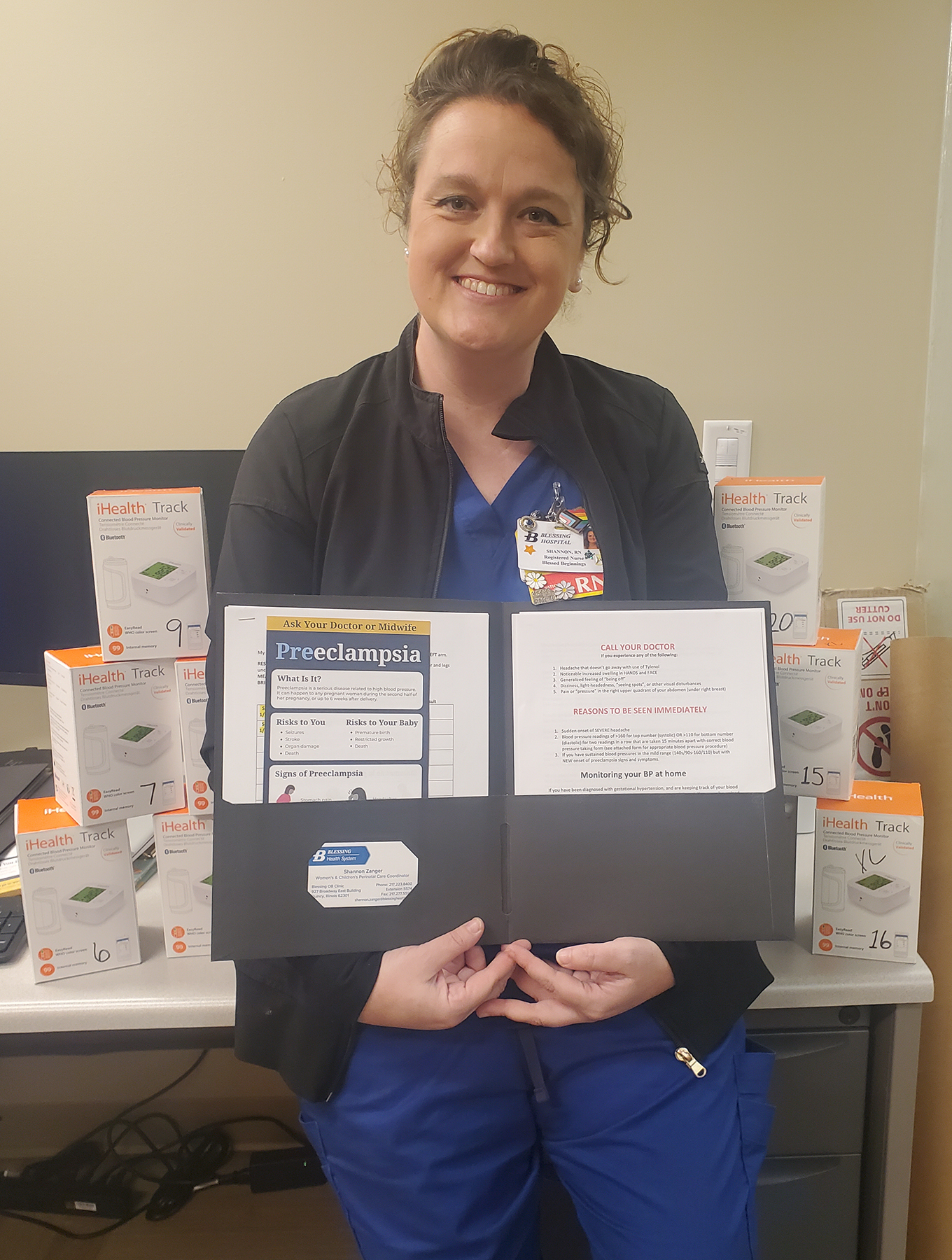
Giving birth has changed over the years. New techniques and options allow families to be more involved with their care and plan their own experience. But not all recent changes have been as positive.
“Across the State of Illinois, we are seeing a statistically significant increase in women who have health risk factors including high blood pressure, diabetes and obesity,” said Jamie Kane, DNP, MBA, RN, administrative director, Women’s Health Services, Blessing Health.
The Illinois Department of Public Health reports that between 2010 and 2020, maternal high blood pressure increased 103%, maternal diabetes increased 68% and maternal obesity increased 33%.
“These conditions make women more at risk for complications when delivering a baby, and we are seeing those complications occurring,” Jamie continued.
She says of the women from Illinois who deliver their babies at Blessing, approximately 34% have obesity as a risk factor, and greater than 11% have one or more of the following as a risk factor: high blood pressure, diabetes, or a substance use disorder.
In response, Blessing Health’s team – including the nurses who care for and help guide mothers through the birthing process – have created new programs to reduce the chances of complications resulting from these new health trends.
Blood pressure project
High blood pressure in pregnant women can lead to seizures and coma.
To reduce that risk, Shannon Zanger, RN Outpatient Care Coordinator, Blessing Health, has standardized information regarding high blood pressure and pregnancy so all women get the same information. She also has worked with a national organization to secure 20 blood pressure cuffs that patients can use at no cost.
“And I follow those patients closely throughout their care to make sure that all women have been taught the same way - how to accurately take their blood pressure and what signs and symptoms to look for,” Shannon said.
The program is working. She was able to help a woman, who was early in her pregnancy, start taking blood pressure medication two-and-a-half weeks before her first obstetric appointment and learn how to take her blood pressure appropriately.
“This program really improves women’s outcomes because barriers have been removed and they have adequate access to care,” Jamie added.
OB rapid response
Maternity nurses say hemorrhaging, or bleeding at or around the time of delivery, is terrifying for moms and their care teams. In particular, Postpartum hemorrhage (PPH) is a serious and potentially fatal condition. As a result of PPH large amounts of blood can be lost very quickly, causing a sharp drop in blood pressure which can restrict blood flow to the brain and other organs. This is called shock, and can lead to death.
In response to more women at risk for hemorrhaging, the nursing staff of Blessed Beginnings birth center has partnered with a number of other departments and hospital services to streamline the process used in cases of hemorrhage. It’s called OB Rapid Response.
“We have protocols in place that are activated very quickly,” Jamie said. “We are proactive instead of reactive - controlling the situation, minimizing the blood loss and giving patients the best chance for a positive outcome.”
OB Rapid Response has reduced significantly the number of phone calls a nurse has to make to get all the resources needed at the bedside of a hemorrhaging patient.
“Now we make one phone call and get every resource that could possibly be needed in this critical situation,” Jamie said.
The OB Rapid Response program has reduced the time it takes to begin hemorrhage treatment by as much as 84%.
Post-partum support
New moms, even experienced ones, sometimes need care and support after they leave the hospital. Blessing now offers a post-partum support group. The meetings are held in partnership with the Quincy Children’s Museum to enhance the family feeling at meetings while providing vital services to new moms and families.
“The care we offer women does not end as soon as their baby is born,” Jamie said. “We’re here to provide care in the post-partum period, providing access to care and resources needed after the hospital stay, including having good mental health and peer support.”
“We want to make an impact in a mom’s life and help them identify where they might need help that they would otherwise not ask for,” she concluded
The post-partum support group meets the third Wednesday of every month from 9-10:30 am at Quincy Children's Museum, with the exception of the May meeting which will be from 11 am-12:30 pm. The museum is at 115 N. 4th Street in Quincy.
Blessed Beginnings has been recognized by Blue Cross and Blue Shield of Illinois with a Blue Distinction® Centers (BDC) for Maternity Care designation. To earn the designation, a facility must deliver quality care, safely and effectively. Based on data from the current designation cycle, facilities designated under the Blue Distinction Centers for Maternity Care program demonstrate higher-quality care compared to non-Blue Distinction Center facilities.
For more information on Blessing Hospital’s birthing services go to blessinghealth.org/BlessedBeginnings.
